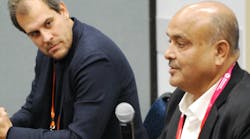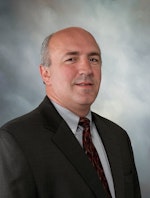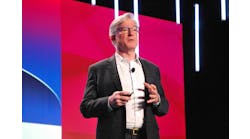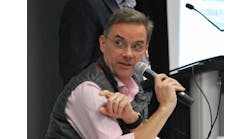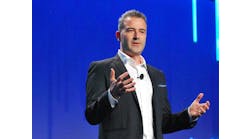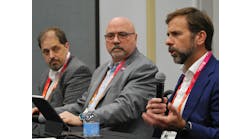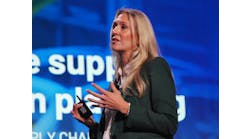Two sustainable innovators rely on Rockwell to automate and scale
On two different continents, innovative companies are looking at water in new ways to recover, reuse, recycle, regenerate and reduce the carbon footprint. Sweetch Energy, headquartered in France, and India’s Spray Engineering Devices are relying on automation technology from Rockwell Automation to build scalable equipment as they gain traction in the marketplace.
Both Sweetch and Spray are using Rockwell’s PowerFlex drives and Logix controller platform in their machinery for moving water and controlling the process, but the similarities end there.
Osmotic energy generation
“We are engaged in osmotic power, mixing freshwater and saltwater,” said Nicolas Heuzé, CEO, Sweetch Energy. Automation is critical in this process. “Electrification is skyrocketing everywhere,” said Heuzé. “Osmotic energy could supply 15-20% of global power, complementing the existing renewable energy from wind and solar.”
In osmotic energy, ions move across a membrane when you pass freshwater and saltwater on either side. That movement is energy. “We convert the ionic energy into electricity,” said Heuzé.
Ionic nano-osmotic diffusion is the generation of ionic currents through mesh membranes and is used to generate electricity from osmotic energy. About 10 years ago, Sweetch began work on designing a larger mesh membrane that would utilize this discovery. “It took us four or five years to design the membrane,” explained Heuzé. “About three years ago, we had a proof of concept.”
In the electricity sector, providers need to be cost-competitive, reliable and clean, noted Heuzé. “What we’re doing is bringing in freshwater from the river and seawater,” he explained. “We need to know what’s going on in our system. You can only do that with the right control command, which is what we’re doing with Rockwell. We need a system that is repeatable.”
It’s also important to control in real time. “There are a lot of valves in our system,” explained Heuzé. “If you do it manually, you cannot scale. Integrating this technology into existing infrastructure is a challenge. Real-time analytics are at the core of our system. We need to have control to optimize energy output while minimizing resource use. We want to make sure we don’t impact the environment. It’s a new technology, so we need to prove it is reliable and safe.”
Because Sweetch’s technology is at the leading edge of a new industry, it needs to be scalable and continue to evolve. “We want something that will grow with us,” said Heuzé. “The principle is great, but we need to make sure the cybersecurity works right. We need to continuously improve our system.”
With approximately 60 employees, Sweetch is headquartered in Brittany, France, but its first demonstrator will be located in the south of France where the Rhône River empties into the Mediterranean Sea. “Our goal is to provide a 50-kW plant,” said Heuzé. “We’re looking for optimums—how much water, how fast we bring in the water and how much energy do you capture. To run 1 MW power you need 1 cubic m of water per second.” Pumping that water yields 75-80% efficiency with the return in osmotic power.
Endress+Hauser flowmeters are used to measure and regulate the flow of the freshwater and the saltwater. In addition to Rockwell’s drives and CompactLogix controllers, Sweetch is using FactoryTalk Optix for remote-operation capabilities.
It took eight years to develop the technology, but Sweetch’s major challenge now is to scale fast. “We have global ambitions,” noted Heuzé. “The technology is highly modular. We are looking at some sites in United States and Canada.”
Pressure purification
In India, Spray Engineering Devices is heating water for purification without burning fossil fuels. “Water boils at 100 °C. We created a technology where water boils at 63 °C at 20 kPa negative pressure,” said Lalit Handa, CEO and director of operations, Spray Engineering Devices.
“We capture low pressure water vapors emitted from wastewater,” said Handa. “In a compressor, they become high-temperature, high-pressure vapors. These vapors then exchange heat with falling wastewater and then are condensed and captured. This water is the same purity as rainwater falling from the sky.”
Like Sweetch’s technology, Spray’s machine design is modular, so the capacity is scalable and conceivably limitless. The 250 machines already in use, mostly in India, range in size from one processing 24 kiloliters/day to two machines with 4,000 kiloliters/day capacity.
“We invented this technology for the wastewater and biofuel segment,” said Handa, but it was borne out of Spray’s sugar-refining expertise, which spans more than three decades. The wastewater technology has been around for the past 10 years. Spray is now handling 14 million liters of water per day.
India, which is experiencing record power shortages, is expected to become the global leader for renewable energy in an attempt to meet growing demand. “We have to reduce our carbon footprints,” emphasized Handa. “Our technology does not need heat by burning fossil fuels. We are going to be carbon-negative.”
Automation has given Spray real-time data and analysis. With data analytics, challenges are opportunities, said Handa. “We trust our suppliers that they will be cyber-safe,” he noted. “We are operating the plants remotely from our control room. Rockwell has given us the technology to connect fast and securely. Data is a resource now.”
While Sweetch relies on Rockwell’s FactoryTalk Optix for remote access and operation, Spray uses Fortinet for its secure remote connectivity from the control center at its headquarters in Mohali, India, to its equipment located throughout the country and in Africa.
Spray works with many suppliers, explained Handa. “With Rockwell, we get more complex problem solving,” he said. “When we are going to export our projects to the United States, only Rockwell technology qualifies. We are increasing our bandwidth, working with Rockwell all of the time. We don’t need to burn fossil fuels; we are generating the energy by compressing heat and turning it into energy. There’s a lot of complexity in that.”
Spray is also in talks to recover wastewater from the electroplating industry in Connecticut. “We’ve also opened a legal entity in Texas,” said Handa. “We’re exploring business markets in the United States, and we’re looking to expand in Africa.”
